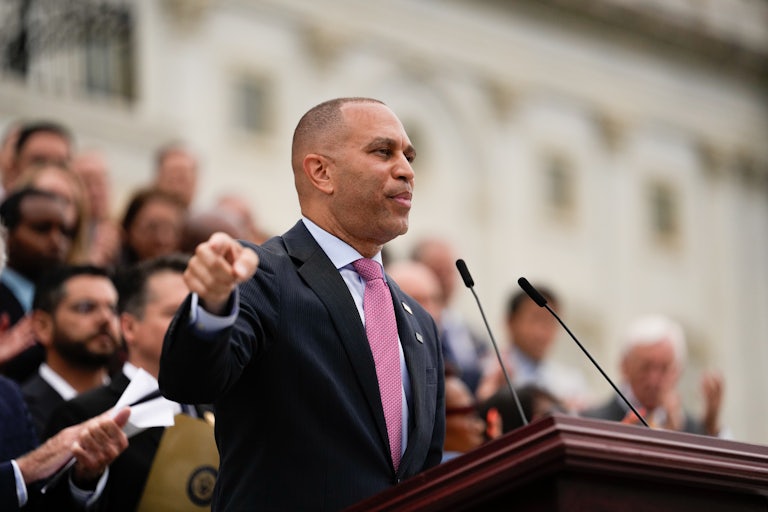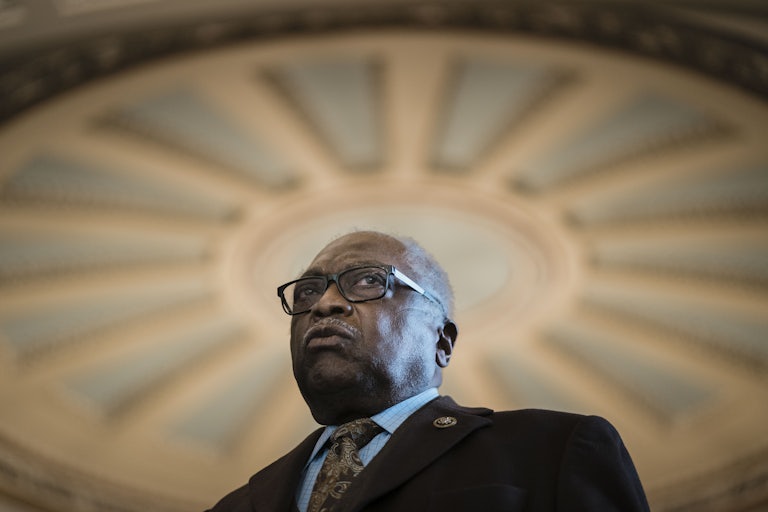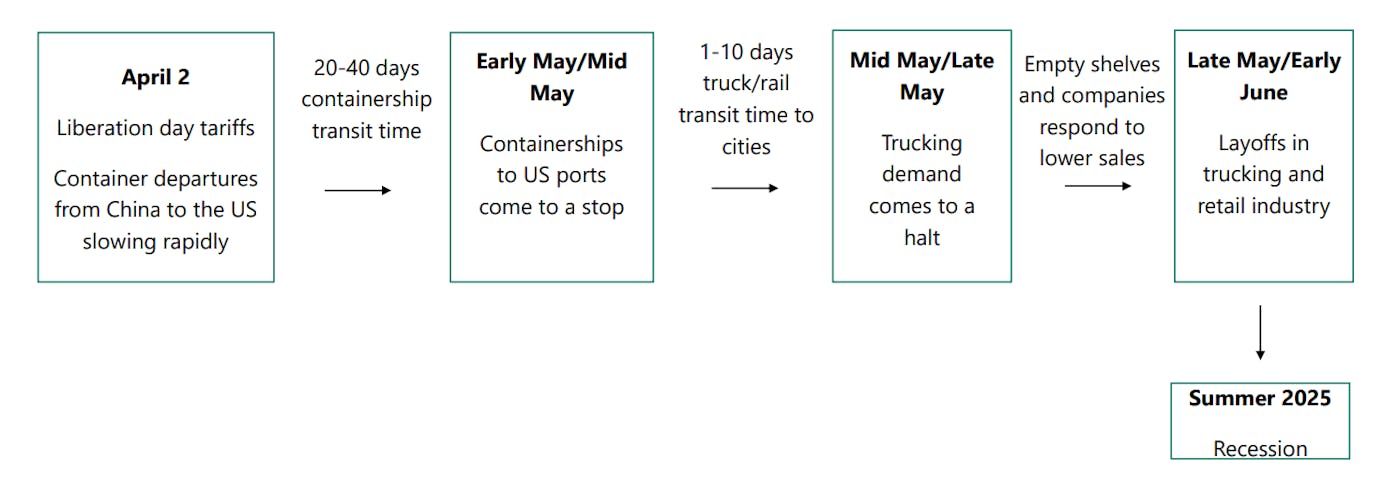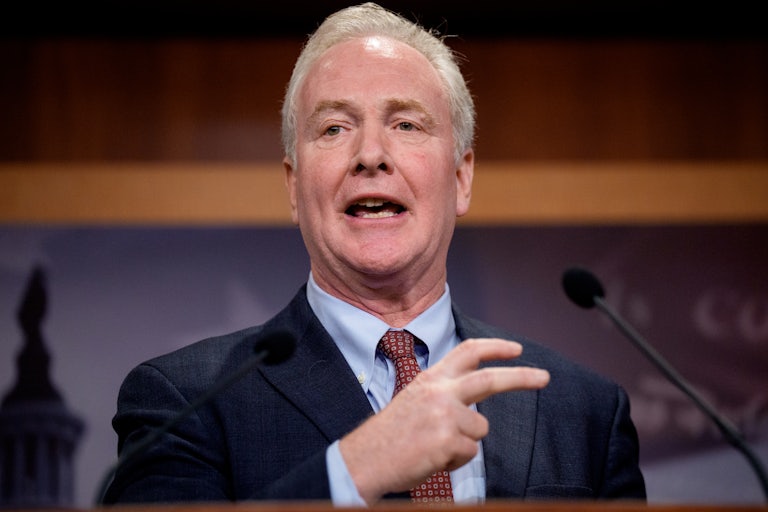Yes, Dems Should Push to Repeal Trump’s Big Bad Law—but Not Stop There
James Carville had a decent idea, for once. But it’s easily improved upon.
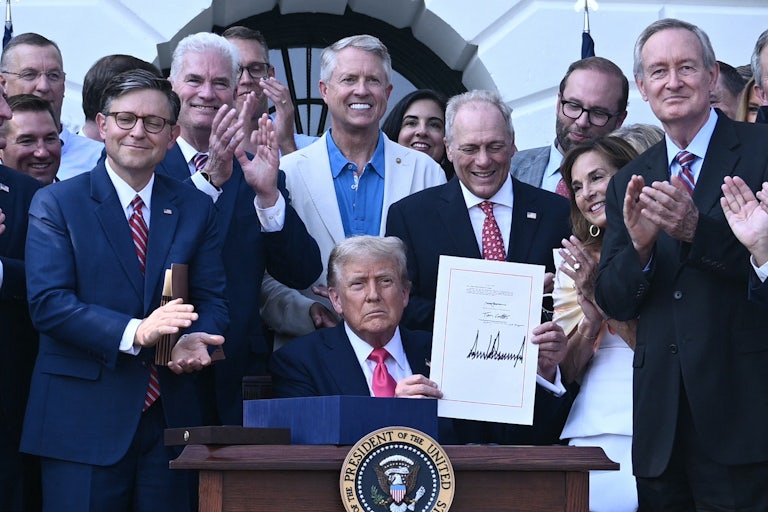
Earlier this month, I brought you the good news that Democrats were developing a concept of a plan for their upcoming midterm campaign, having spent the first half of the year on a concentrated strategy of sitting back and letting Republicans screw things up. The precipitating event for the change of heart, according to reports, was the passage of President Donald Trump’s One Big Beautiful Bill Act, which I guess was the trap that Democrats were hoping to spring. Well, as if to confirm that the game is, finally, afoot, James Carville—the chief advocate of his party’s “roll over and play dead” strategy—is calling for a big shift, in a recent op-ed in The New York Times.
To my surprise, there is merit to be found in his proposed line of attack. But it’s sandwiched between a confused read of the political landscape and a rather limp call to action that really fails to contemplate the real harms that Trump’s legislation is about to unleash. For this garden to bear fruit, we need to do some weeding.
As is their wont, the minders of the rubber room in which New York Times opinion pieces are formed did permit Carville to spend several paragraphs throat-clearing about how the Democrats are “constipated” and “leaderless”—which, you know, shouldn’t bother someone who advised them to do nothing for six months, anyway. He also seems weirdly panicked at the fact that Zohran Mamdani won his party’s nomination for the upcoming New York mayoral election, which to Carville represents “an undeniable fissure in our political soul.” To my mind, our political soul would be more gravely imperiled had serial sex pest Andrew Cuomo won the nomination, but it’s always interesting to learn about what elite Democrats and their favorite newspaper editors are prepared to forgive.
After this simultaneously overwrought and underbaked beginning, we finally arrive at Carville’s big idea: Democrats should let Trump “rope-a-dope with MAGA on the Jeffrey Epstein case” without “get[ting] in the way” and instead train their fire on the depredations of Trump’s budget bill.
Now, I come from a controversial school of thought that holds that a political party can, and even should, do two things at once. But I’m willing to concede that the Epstein matter has become something of a perpetual motion machine, with Trump’s own actions being the strongest force keeping this hurdy-gurdy spinning. It is also the precise kind of story—salacious, wicked, and conspiratorial—that our cynical political media doesn’t need outside encouragement to cover. As always, Democrats should take note of what it is the political press wants to spend its time covering and do more to provide low-minded fodder for partisan conflict.
But Carville is very much on point where one vital matter is concerned: This is a phenomenally favorable environment to wage war on Trump’s signature law. Carville cites a July 16 CNN poll that found that a majority of respondents oppose the One Big Beautiful Bill Act, 61–39 percent, and expect it to hurt the economy, 51–29 percent.
What can I say? The public basically has it correct. Taken as a whole, we have strong evidence that there is fertile terrain to wage a maximal battle against Trump on this issue. So it’s puzzling that Carville’s clarion call to action is so oddly muted—and so fundamentally illogical:
Our midterm march starts with a simple phrase every candidate can blast on every screen and stage: We demand a repeal. A repeal of Mr. Trump’s spending law is the one word that should define the midterms. It is clear, forceful and full-throated. It must be slathered across every poster, every ad, every social media post from now until November 2026. That single word is our core message. Every Democrat can run on it, with outrage directed not at the president or a person but at this disastrous bill. And the reasons are countless, each one a venom-tipped political dagger.
I am really struggling to understand how we’ve landed at “We demand a repeal.” In the first place, are Democrats … not planning on winning the midterm elections? I thought the goal here was to take back both houses of Congress, in which case they wouldn’t need to demand a repeal from anyone, they could simply—you know—pass their own bills to repeal things and then demand the president sign them. Which Trump wouldn’t do, of course, but hopefully Democrats understand that the goal here would be to use politics to cross-pressure vulnerable Republicans and construct an anti-GOP electoral majority, not expect Trump to give in to their demands. Republicans spent the Obama years trying to send Obamacare repeals to his desk, not because they thought he’d sign them but because doing so helped reaffirm their commitment with their base.
At any rate, “Demand a repeal” is strained and supine—it suggests that you’re either not planning on using your power to fight or you somehow still intend to attempt bipartisan collaboration once you gain back power. A clearer and more full-throated campaign message would be, “Not only will we repeal this bill, we will pass bills to undo the damage done to the government, we will fight to get the civil service rehired, and we will crush the corrupt thieves who stole your wealth and health care.”
And they shouldn’t stop there. Democrats need to contend with what the One Big Beautiful law will do—and it’s not clear that Carville, at any rate, is prepared to do that. Yes, the law, as Carville suggests, filches wealth from the American people in a thousand different ways, but he fails to connect the all-important dots as to where that money is actually going. Beyond the usual, bog-standard creation of yet another taxpayer-funded slush-fund for oligarchs, Trump’s law is a massive transfer of wealth from the American people to fund a domestic deportation army and construct a nationwide network of concentration camps.
Phenomenal sums of money are already changing hands. The law allocates $8 billion to ICE to go on a massive hiring spree, for which the agency is offering $50,000 signing bonuses. This week, an eye-popping Bloomberg story reported that the Virginia-based Acquisition Logistics Company was awarded a $1.26 billion contract to build another detention facility in Texas. Prior to winning that contract, the firm had collected a mere $29 million in Defense Department contracts. And the fact that the company “doesn’t appear to have any experience with detention” was no impediment to its receiving this windfall.
The law is not merely greedy; it’s not merely cruel. What Trump is doing is nefarious. Needless to say, I’m troubled by Carville’s omission of the way this one law furthers and funds what can only be called the president’s fascistic designs for our country’s future. And I’m troubled by the feeling that Democrats—who are far from great on the issues of immigration and asylum—may try to duck this fight.
Democrats are notoriously conflict-averse, and I worry that they’re still intimidated by Trump’s alleged mastery of the immigration issue. But the biggest reason to take this fight to Trump is that Trump doesn’t think Democrats have the heart for it. As Brian Beutler recently noted, Trump is “betting that grappling with a giant, masked right-wing police force and a multistate immigrant gulag will tear Dems apart if they ever retake power.” Anyone authentically concerned with “undeniable fissures” in the Democrats’ “political soul,” as Carville purports to be, needs to make sure Trump loses this bet.
This article first appeared in Power Mad, a weekly TNR newsletter authored by deputy editor Jason Linkins. Sign up here.
